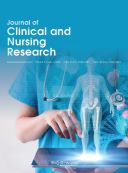Abstract
Objectives: A meta-analysis was conducted to systematically evaluate the effect of the escape room teaching method on nursing education. Methods: We searched PubMed, Medline, Web of Science, CNKI, VIP, and Wanfang databases, with a search time frame from the first day of database establishment to October 2022. Two researchers evaluated the quality of the obtained literature and extracted the data. The RevMan5.4 software was used for meta-analysis. Results: A total of 7 studies involving 1487 nursing students were included. Compared with the control group, the escape room teaching method improved the professional performance of nursing students [standardized mean difference (SMD) = 0.98, 95% confidence interval (CI; 0.38,1.59), P < 0.0001]. The critical thinking ability of nursing students was enhanced [mean difference (MD) = 12.64, 95% CI (7.91,17.37), P < 0.0001], and the investment level of nursing students in learning was improved [MD = 4.18, 95% CI (1.74,6.62), P < 0.0001]. Conclusion: The escape room teaching method can improve nursing students’ professional performance, critical thinking ability, and learning engagement level. There is no significant difference in the impact of nursing teaching satisfaction, and there is still a lack of data support. This paper is limited by the quality and quantity of included literature, and more high-quality studies are still needed to further demonstrate the above conclusions.
References
The CPC Central Committee and The State Council issue China’s Modernization of Education 2035. People’s Education Press, 2019(5): 6–10.
Bigdeli S, Kaufman D, 2017, Digital Games in Health Professions Education: Advantages, Disadvantages, and Game Engagement Factors. Med J Islam Repub Iran, 31: 117.
Khanna A, Ravindran A, Ewing B, et al, 2021, Escape MD: Using an Escape Room as a Gamified Educational and Skill-Building Teaching Tool for Internal Medicine Residents. Cureus, 13(9): e18314.
Li J, Gao W, Ling Y. 2020, A Review of the Foreign Chemistry Escape Room Game Teaching Model. Journal of Chemical Education, 2020(2): 88–92.
Gómez-Urquiza JL, Hueso-Montoro C, Correa-Rodríguez M, et al, 2022, Nursing Students’ Experience Using an Escape Room for Training Clinical Skills and Competencies on Emergency Care: a Qualitative Observational Study. Medicine (Baltimore), 101(30): e30004.
Dimeo SP, Astemborksi C, Smart J, et al, 2022, a Virtual Escape Room versus Lecture on Infectious Disease Content: Effect on Resident Knowledge and Motivation. West J Emerg Med. 23(1): 9–14.
Anguas-Gracia A, Subirón-Valera AB, Antón-Solanas I, et al, 2021, an Evaluation of Undergraduate Student Nurses’ Gameful Experience While Playing an Escape Room Game as Part of a Community Health Nursing Course. Nurse Educ Today, 103: 104948.
Wang L, Wu W, Guan Y, et al, 2021, Research Progress of Escape Room Teaching in Nursing Education. Chinese Nursing Research, 35(14): 2517–2522.
Liu X, Yuan R, Liang R, 2022, Key Points and Application Progress of Escape Room Teaching Method in Nursing Teaching. Journal of Nurses Training, 37(14): 1296–1300.
Higgins JP, Altman DG, Gøtzsche PC, et al, 2011, The Cochrane Collaboration’s Tool for Assessing Risk of Bias in Randomised Trials. BMJ, 343: d5928.
Peng Z, Wang L, Huang Y, et al, 2022, Application of Wisdom Tree Doodle Guide Joint Escape Room Assessment in Nursing Teaching of Higher Vocational Nursing Students. Chinese General Practice Nursing, 20(22): 3154–3156.
Li Y, Gong C, Tan L, et al, 2022, Application of Escape Room Teaching Model in Clinical Practice Teaching in Department of Cardiovascular Medicine for Baccalaureate Nursing Students. Journal of Nursing Science, 37(2): 56–59.
Xu L, Yang L, Li E, et al, 2022, Application of “Escape Room” Game Teaching Combined with Situational Case in Nursing Training Teaching of Neurology Department. Chinese Journal of Medical Education Research, 21(7): 948–952.
Gutiérrez-Puertas L, Márquez-Hernández VV, Román-López P, et al., 2020, Escape Rooms as a Clinical Evaluation Method for Nursing Students, Clinical Simulation in Nursing, 49: 73–80. https://doi.org/10.1016/j.ecns.2020.05.010
Rodriguez-Ferrer JM, Manzano-León A, Cangas AJ, et al, 2022, a Web-Based Escape Room to Raise Awareness About Severe Mental Illness Among University Students: Randomized Controlled Trial. JMIR Serious Games, 10(2): e34222.
Molina-Torres G, Cardona D, Requena M, et al, 2022, The Impact of Using an “Anatomy Escape Room” on Nursing Students: a Comparative Study. Nurse Educ Today, 109: 105205.
Bujanda A, Bujanda E. DIABESCAPE: an Innovative Educational Project on Diabetes. Endocrinol Diabetes Nutr (Engl Ed), 69(6): 392–400.
Cates AL, Krueger J, Simpson SE, et al, 2020, Comparing the Effectiveness of a Virtual Toxicology Escape Room at Two Emergency Medicine Residencies. Cureus, 12(10): e11262.
Gentry SV, Gauthier A, L’Estrade Ehrstrom B, et al, 2019, Serious Gaming and Gamification Education in Health Professions: Systematic Review. J Med Internet Res, 21(3): e12994.
